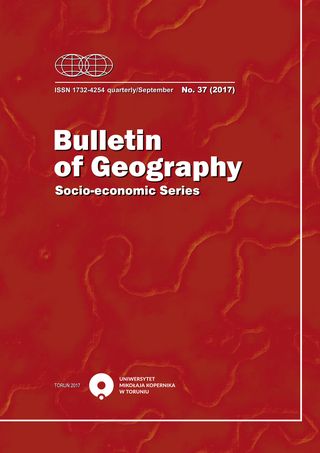Longitudinal correlations of car ownership with socio-economics, urban form, and transport infrastructure in Latin America: Example from Ensenada, Mexico
Longitudinal correlations of car ownership with socio-economics, urban form, and transport infrastructure in Latin America: Example from Ensenada, Mexico
Author(s): Daniela Roque, Houshmand E. MasoumiSubject(s): Human Geography, Regional Geography, Applied Geography, Socio-Economic Research
Published by: Wydawnictwo Naukowe Uniwersytetu Mikołaja Kopernika
Keywords: car ownership; urban form; socio-economics; land-use mix; Mexico;
Summary/Abstract: Car-orientated modal splits represent problems for the city in economic, environmental and social terms. The implementation of policies and other measures can fail if the causes are not well recognized. Mid-sized cities in Mexico are not well-represented in studies where only the capital and other bigger cities are studied. This research aims to recognize those causes focusing on northern mid-sized cities in Mexico. The approach involves numerical work (linear regression) complemented with a descriptive analysis of the city. The analysis takes on such areas of consideration as socio-economic factors, land-use variables and the street network of the city. Of the 16 variables, almost all presented a relationship with car ownership levels, but not all behaved as expected. The final part of the research is a reaction to the previous studies and recommendations to change the city from car-orientated to one with a sustainable modal split.
Journal: Bulletin of Geography. Socio-economic Series
- Issue Year: 2017
- Issue No: 37
- Page Range: 109-123
- Page Count: 15
- Language: English

